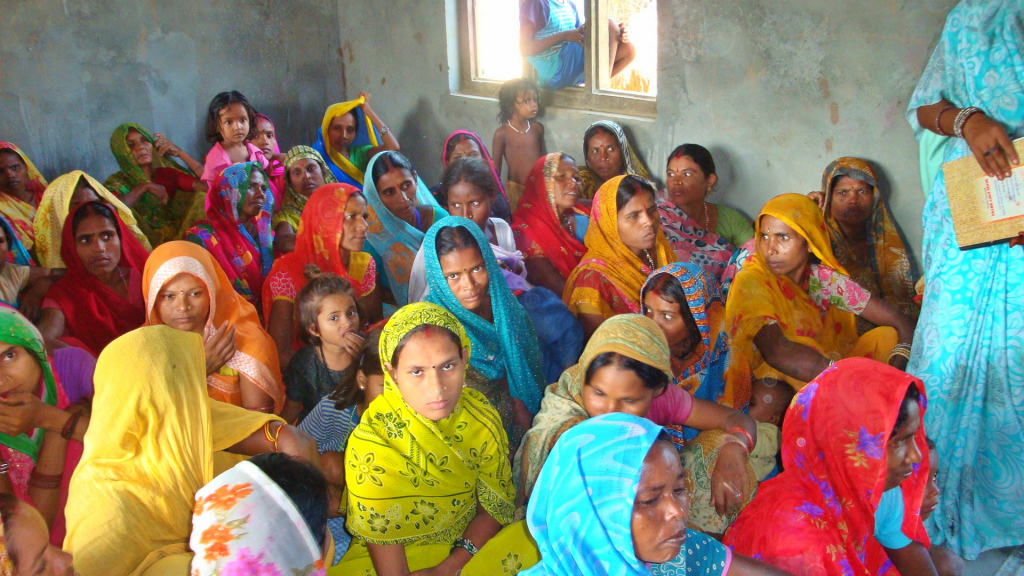The living condition of Dalit's and most vulnerable groups of Nepal are socially, economically and politically marginalized. The state has declared the country as gender equality in all aspects but in practice it has not been followed. In the society, inequality between men and women and gender discrimination still exists. However, it is important to empower poor and marginalized women socially and economically to reduce gender discrimination and inequality between women and men.RENEW is a fully gender equality four years project which aims to enhance the socio-economic empowerment of women and girls, especially from Dalit and most vulnerable groups ofMakwanpur and Nuwakot districts. The 5 major components of RENEW is climate change adaptation, micro- small enterprises, cooperative education, social inclusion and womenleadership, human rights and gender equality. The ultimate outcome of the project will beachieved by bringing a human rights- based approach (HRBA) to economic and social growth – focusing on climate change adaptation (CCA), enhanced performance of micro/small-scaleenterprises, increased access to the products and services required by these enterprises, as well as on the social empowerment of women and girls enabling them to effectively engage in theircommunities. The HRBA helps to promote a strong sense of community inclusion and sisterhood which will boost women’s and girls’ aspirations, confidence, decision-making autonomy and leadership and as a result women and girls can enjoy their human rights (HR). Furthermore, capacity-building by our local partners will enable them to increase women’s and girls’ participation and leadership in community decision-making while better promoting andadvancing human rights (HR) and gender equality.Goal: To enhance social and economic empowerment of the women and girls particularly Dalitand most vulnerable groups in Makwanpur and Nuwakot, Nepal.Objectives:
- To improve economic status of women and girls, particularly from Dalit and most vulnerable groups.
- To increase participation and leadership in community decision- making by women, particularly by Dalit and most vulnerable groups.
- To enhance exercising of human rights by women and girls, particularly from Dalit and most vulnerable groups.
Expected Outcomes:
1. Improved Knowledge and skills for climate change adaptation (CCA) throughsustainable agriculture and environmental management among women smallholderfarmers.2. Enhanced capacity for micro and small- scale enterprise management by women and girls.3. Strengthened skills of village women’s groups to support the social and economicempowerment of women and girls.4. Enhanced capacity among local partner NGOs to advance the social and economicempowerment of women and girls.5. Increased community knowledge and understanding human rights issues affectingwomen and girls6. Increased agency of most vulnerable women and girls to advocate for their own human rights
Target Area
RENEW is working in 30 villages of Nuwakot and Makwanpur districts of Central developmentRegion (CDR).International and local partners of RENEWInternational partners
- Government of Canada (GAC)
- World Accord (WA)
- Local partners
- Women for Peace and Democracy Nepal (WPD- Nepal)
- Informal Sector Service Centre (INSEC)
- Rural Self- reliance Development Centre (RSDC)
- Microfinance and cooperative expert, Bishnu K. Shrestha (COOP)
- Environmental management and Climate change expert, Damodar Dhital (EMCC)
Direct and Indirect beneficiaries of the projectDirect Beneficiaries:
- Total 900 Dalit and most vulnerable women and girls, 450 from Nuwakot and 450 from Makwanpur districts.
- Men and boys of the same households as the targeted women and girls
- Local stakeholders (Rural Municipality, ward members, teachers, women and youth associations)
Indirect Beneficiaries:
- The other community members from Makwanpur and Nuwakot districts
- NGOs, religious and community organizations
- Private sector
Preliminary Information Plan (PIP).A field visit to Nuwakot and Makwanpur was conducted to gather information for the PIP. A team of 5; Ms. Isabelle Hachette (Program coordinator, World Accord), Shobha), Shobha Pradhan Shrestha, Executive Chair WPD Nepal, Shreya Bajracharya, Program
